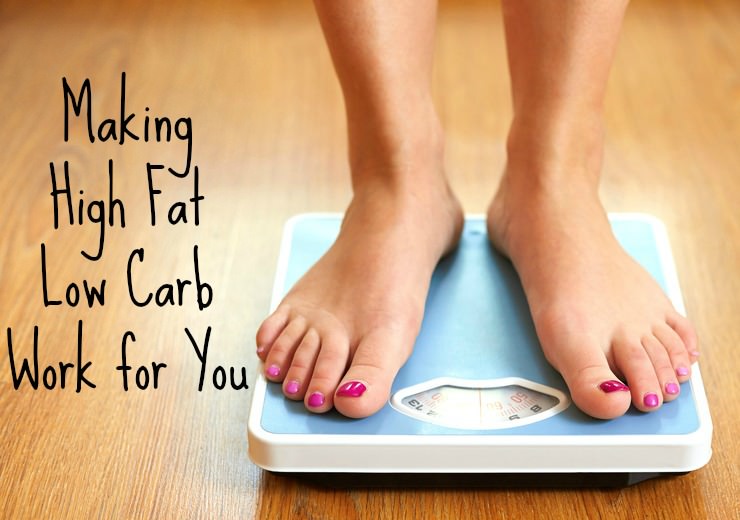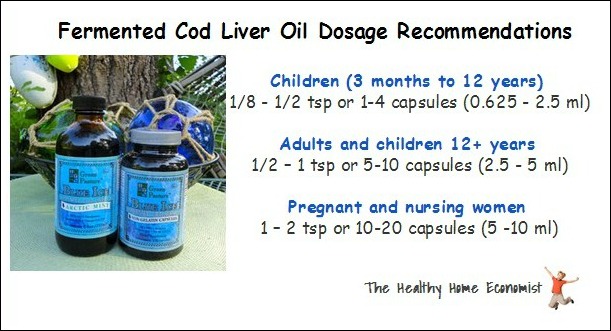Table of Contents[Hide][Show]

People new to the concept of Traditional Diet are usually shocked to see how much fat is consumed on a daily basis.
Mind you, this discussion does not include factory fats like transfats, interesterified fats, or rancid and usually genetically modified vegetable oils like corn, canola, and soy. These types of fats are cheap, industrially processed, were never consumed in ancestral cultures, and are in no way healthy!
Rather, the fats that are prominent in Traditional Diets are those lipids that have nourished long-lived, degenerative disease-free cultures for centuries: butter, ghee, coconut oil, olive oil, palm oil, lard, tallow, and cod liver oil.
The best part is that making these traditional fats a primary rather than a shunned part of the diet produces an easy weight loss experience that is maintained without starvation or periodic fasting rituals. It also avoids short term weight loss with a nasty rebound to weight gain that is even harder to take off than before such as what happens on the high carb DASH Diet.
Let’s examine some of the best scientific evidence that supports what our ancestors already knew: healthy fats don’t make you fat and that high-fat low carb is the easiest way to lose weight and keep it off.
Compelling research on this subject was conducted at the Harvard School of Public Health. The research was presented at the 2003 conference of the Association for the Study of Obesity.
Researchers divided 21 overweight volunteers into three different dietary groups. The first group was assigned to a low-fat, high carb diet, and the second group to a high-fat low carb diet. Both groups consumed 1500 calories per day for the women and 1800 calories per day for the men – definitely not a starvation diet.
Finally, the third group ate high fat low carb but was allowed an extra 300 calories per day.
It is important to note that the second and third groups eating high fat low carb ate a whopping 65% of their calories as fat with only 15% protein and approximately 20% carbs. The misguided USDA dietary guidelines recommend 45-65% carbs, double or even triple the amount of the study participants!
The researchers were able to keep tabs on what the participants were eating because all the food was prepared for the study so cheating or deviation from the meal plans was minimized as much as possible.
At the conclusion of the study, the people in the second group lost the most: 23 pounds. The first group eating low-fat, high carb lost the least – only 17 pounds.
The third group eating high fat, low carb along with the additional 300 calories lost 20 pounds – more than the low-fat group eating fewer calories!
If this study excites you, it should. What it suggests is that not only will a high-fat Traditional Diet help you lose weight, but you won’t have to starve yourself to do it.
Not all calories are created equal!
Also, fat is the most satiating of all the macronutrients and keeps blood sugar steady for long periods of time. Thus, a high-fat diet is the easiest to stay on because it reduces sugar cravings significantly and you don’t feel deprived and hungry all the time.
Want to High Fat Low Carb It? Do This
If you’ve never eaten high fat low carb before and want to try it for yourself to get off the dieting yo-yo ride for good, get to a healthy weight and just eat Real Food the way our ancestors did, try following the high fat low carb approach that authors Sally Fallon Morell and Dr. Mary Enig suggest in Eat Fat, Lose Fat.
Other high fat low carb options include the 21 Day Bone Broth Diet or the Zoe Harcombe Diet.
Follow a 2500 calorie a day meal plan for two weeks. You will likely lose weight slowly but surely doing this – continue beyond two weeks as necessary until your ideal weight is achieved.
The suggested macronutrient breakdown for the 2500 calorie high fat low carb plan is based on the Traditional Diets of our healthy ancestors: 10 percent protein, 30 percent carbohydrate, and 60 percent fat. Note that it’s not a keto diet or even Paleo.
This approach is not just theoretical to me as it is very close to what I have followed myself for over 13 years. It has successfully kept me at my college weight with no dieting or deprivation and only a moderate amount of working out (running too much can be counterproductive with free radical damage) even after three pregnancies and progression into middle age.
The 30% carbs can include or exclude grain-based foods. There are traditional cultures that ate them, and a few that did not. I choose to eat them as I feel better, have more energy and maintain my ideal weight more easily when I do. Wading through the smorgasbord of Traditional Foods to determine the mix that is best for you is very important.
If you find that you don’t lose or need a more stringent approach to get rid of those stubborn last few pounds, introduce a small amount of calorie restriction, but not enough to trigger binge eating – 2000 calories per day with the same macronutrient breakdown until you achieve your ideal weight.
Delicious, satisfying meal plans are outlined in Eat Fat, Lose Fat if you desire specific suggestions to keep you on track.
Otherwise, if you are already following an eating approach that is high fat low carb, you can track your macronutrient profile yourself to stay within the suggested framework.
Reach Weight Loss Goals Faster with Coconut Oil
To ensure that you reach your weight loss goals as quickly as possible, it is recommended that you consume coconut oil before each meal to serve as an appetite suppressant. This article on using coconut oil for weight loss outlines exactly how much coconut oil to take for your body weight and how to best take it for optimal appetite control purposes. Using bone broth for weight loss can help too.
In addition, a daily cod liver oil supplement, ideally that is fermented, is suggested to ensure adequate intake of the fat-soluble vitamins and omega 3 fats prized by ancestral societies. Here are the suggested dosages from Dr. David Levi, Naturopathic Physician.

Have you had success losing and/or maintaining your ideal weight with high fat low carb? Please share your experiences in the comments section.
Sources and More Information
2003 Conference of the Association for the Study of Obesity
Eat Fat, Lose Fat
How Vegetable Oils Make Us Fat
Doctor’s Orders: Your Family Needs Cod Liver Oil
When Coconut Oil May Not Be Right for You
MCT Oil: The Coconut Oil Dregs
Cod Liver Oil: Myths and Truths of an Ancient Superfood
Cod Liver Oil 101 (plus Video How-to)
How to Best Swallow Cod Liver Oil








Implementing HFLC can be a great way to lose weight and improve your health, but it’s not always easy to know where to start. Thanks for sharing
The Atkins diet is very successful. In the first two weeks of the plan, CHO’s are quite restricted. However, the list of acceptable foods contain small amounts of CHO’s, and the metabolic process of the breaking down of fat cells to provide energy to our bodies requires more energy( calories) than the calories provided. After the two week introduction period, CHO’s can be provided, but only as instructed. Our need for sugar is really just a habit. A baked potato has a medium level permissible by the second stage of the diet. But it is such an important source of minerals, so I used just 1/2 of a baked potato, 1/2 a slice of 9-grain bread, used milk as a major contributor of the allotted CHO’s, but I followed the regimen to the word.
Could you please give a sample of what a daily menu might look like with the macros you are suggesting and including grains for the carbs. thank you.
This is something more similar to a keto diet. It could be more helpful in losing weight since they offer to consume more fat than carbs.
2500 calories seems like a lot to me, but I guess it just depends on the person.
I’m vegan but still following a similar approach to yours (fat ratio wise) and I feel amazing.
I also do omad (one meal a day) but the weight really started melting off when I added low carb into the mix with plenty of yummy avocado and olives.
My complexion has improved no end and the dermatitis that I’ve had on my hands for three decades has gone!
Furthermore I no longer need midday naps.
What is this witchery? How could something so simple be so amazingly effective at helping my body to heal?
Hello, I am doing keto presently and it is feeling awful. My heart is pounding a lot and just stressed. I am technically in my first two weeks still and the said that can be the worst. Anyway kind of decided to do it because my husband wanted to do it and he has a lot to lose. I on the other hand only have maybe 15 lbs of stubborn belly fat. I was wondering if I should try the the 2500 diet you were mentioning. I just have some questions. Will I still feel hungry? One of the reasons I like keto is that my appetite is more suppressed. Can I implement intermittent fasting with this diet? Will this diet cause me to want to eat every 2 hours? I do not have the time or money to snack constantly. I just want to nourish my body with foods my ancestors ate. I have never done a swab test. But I know I am part English and part scottish. What would work best for that? Any advice much appreciated.
I would recommend taking a look at the Bone Broth Diet which is a traditional foods approach to keto. After 21 days, you switch over to a higher carb (still low carb though) Paleo style approach. Much safer in my opinion. https://www.thehealthyhomeeconomist.com/bone-broth-diet/
Great article, enjoyed the read. I was overweight for quite some time and I tried lots of different methods and none worked. 2 months ago I found an amazing method that works for me really well, I lost 30 pounds already. I was fat before and unhappy with myself, nothing helped.. Finally my life is changing for the better now. Hope it helps someone else.